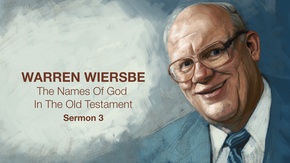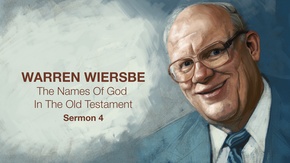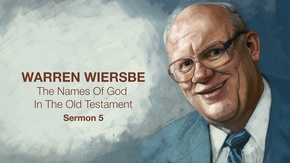The God Who Is There
Dr. Warren W. Wiersbe | June 5, 1977Selected highlights from this sermon
The book of Ezekiel was written when Israel was at its worst. But at the end, we are given a new name for God: Jehovah-Shammah, the Lord is there—God was with them.
As Pastor Wiersbe points out in this sermon, the difference between a believer and a nonbeliever is not morality, education, or success. The difference is the presence of the Lord. Is God with you?
Transcripts for Dr. Wiersbe's sermons are forthcoming. Below is an outline of his message.
First three chapters of Ezekiel: call to ministry.
Chapters 4-24: God will judge Jerusalem.
Chapters 25-32: God will judge nations around Jerusalem.
Ezekiel wrote the book when Israel was at its worst.
His book climaxed with a new name for God: Jehovah-Shammah, the Lord is there.
Four applications of the name “the Lord is there:”
- A promise to Israel
- No other nation had the presence of God.
- God lived with Israel.
- Ezekiel watched God’s glory leave Jerusalem.
- The day will come when God will restore the nation of Israel and His glory will return.
- An assurance to believers today
- Immanuel means “God with us.”
- This is the equivalent to Jehovah-Shammah.
- The difference between a saved man and an unsaved man is not morality, education, or success. The difference is the presence of the Lord.
- The Lord is always with us.
- When we go through the difficulties of life, we can say Jehovah-Shammah.
- We build our lives on the One who never fails.
- A test for the church
- The test of a ministry is if the Lord is there.
- A warning to the lost
- Hell is the absence of the presence of God.
- Heaven is a place of fellowship, but hell is a place of loneliness.
- The unbeliever does not have the presence of God in him.








